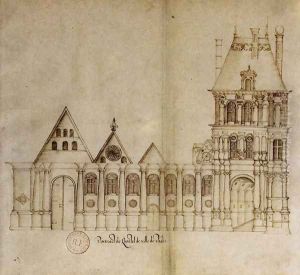Jacques Cellier Paintings
Jacques Cellier was a French musician and composer during the late Renaissance period. Born around 1540, Cellier was primarily active in Reims, where he served as a choir director at the Reims Cathedral. His lifetime coincides with a rich period in the history of music, where the polyphonic style of the Renaissance was flourishing and transitioning into the Baroque era.
Cellier's contributions to the musical world are relatively modest and less well-documented compared to the prominent composers of his time. Nevertheless, he is known to have composed a collection of motets, which are polyphonic choral compositions based on sacred texts, that were used in the liturgical services of the Catholic Church. Additionally, he may have been involved in the musical education of the choirboys at the cathedral, a common practice for someone in his position.
One of the reasons for Cellier's relative obscurity in the annals of music history may be due to the limited dissemination and publication of his works. Unlike some of his contemporaries, it appears that few of his compositions were printed and survived. Those that remain are preserved in manuscript form, which reflects the practice of the time, where much music circulated in handwritten copies.
Jacques Cellier passed away in 1606. While he may not have achieved the fame of other Renaissance composers such as Palestrina, Lassus, or Byrd, his work nonetheless contributes to our understanding of the musical practices and the liturgical soundscape of 16th-century France. His role as a choir director and educator at the Reims Cathedral, an important ecclesiastical institution, underscores the significance of local traditions and institutions in the cultivation and preservation of Renaissance music.
